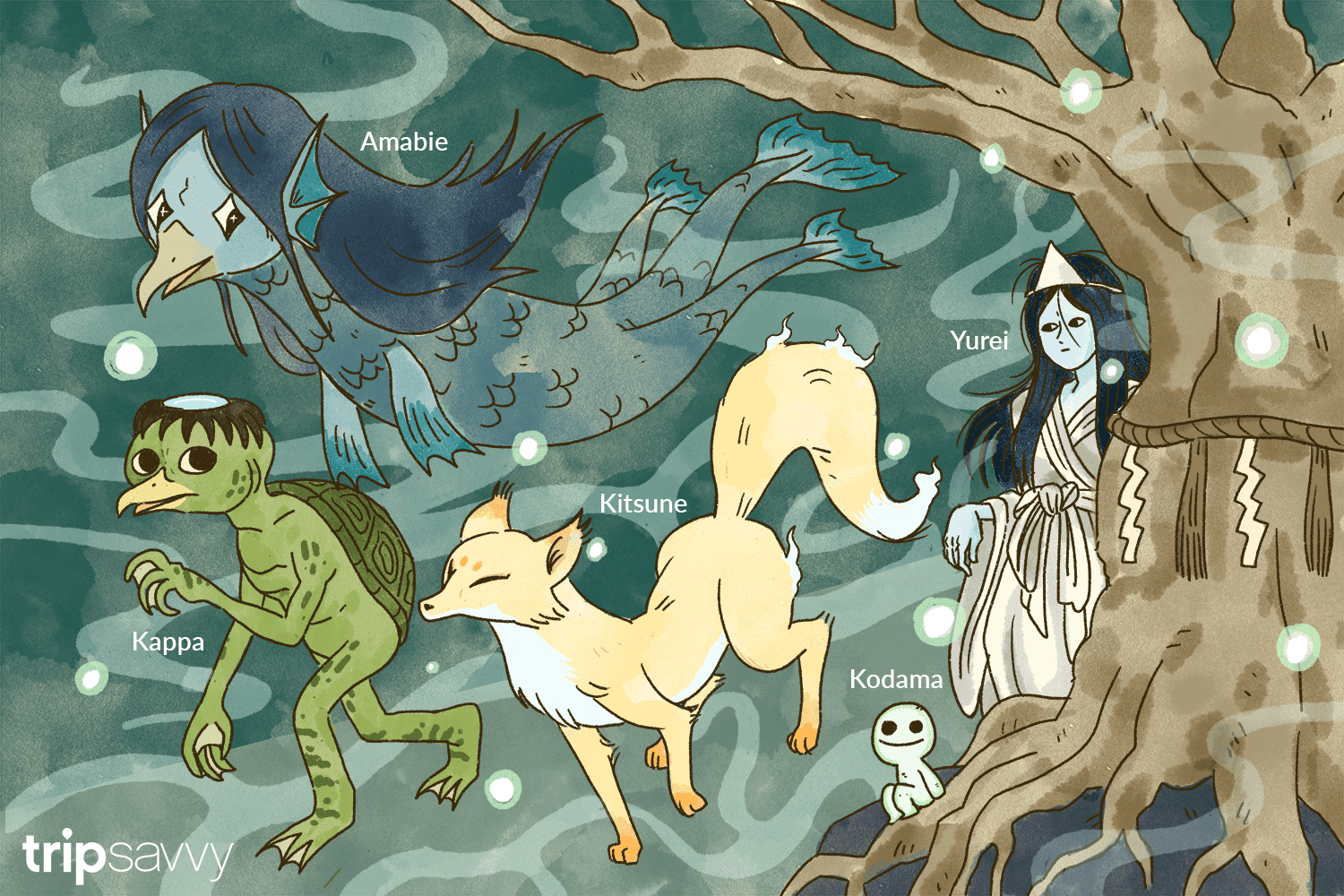Yokai and Samurai Gods are two different classes of legendary beings in Japanese mythology. Yokai are mystifying creatures with supernatural powers and are believed to be spirits of the dead or animals. They have played a functional role in Japanese society by teaching moral lessons and as a warning against undesirable behavior. Samurai Gods, on the other hand, are divine protectors worshipped in Japan’s oldest religion, Shintoism. They are part of Japan’s unique culture and traditions and represent an important aspect of Japanese identity. Although they have differences, Yokai and Samurai Gods share similarities and play an essential role in Japanese folklore and culture.
Japanese Yokai vs. Samurai Gods: A Study of Eastern Mythology’s Most Enigmatic Beings
Japan has a long history of rich and diverse mythology, with its pantheon of deities and spirits. However, among all its mystical and enigmatic creatures, Yokai and Samurai Gods stand out for their unique characteristics and tales. In this article, we’ll explore the differences and similarities between these two fascinating classes of beings.
Yokai: The Mysterious Creatures of the Japanese Folklore
Yokai, meaning “mysterious apparitions,” are supernatural creatures that play a significant role in Japanese folklore. They are known for their unusual appearance, supernatural powers, and often mischievous behavior. They are believed to be spirits of the dead, animals or spirits that have taken on strange forms to interact with humans. Yokai come in many shapes and sizes, from the kappa, a water imp that drags people into the water, to the tengu, a bird-like creature that is skilled in martial arts.
The Cultural Significance of Yokai
In Japan, Yokai play a vital role in its cultural heritage. They are featured in literature, artwork, and even modern-day pop culture. Many cities and regions boast their unique Yokai stories that add to their local folklore. Exploring Yokai is not only fun, but it also provides a crucial insight into Japan’s history, beliefs, and societal norms.
Yokai and Their Role in Japanese Society
Yokai do more than entertain and scare people in Japan. They have also played a functional role in society by teaching moral lessons. For centuries, parents have used Yokai stories to teach their children various virtues, from being honest and respectful to protecting the environment. Yokai is also used as a warning against undesirable behavior, such as littering or breaking the law.
Samurai Gods: The Divine Protectors of Japan
Samurai Gods or Shinigami are divine beings worshipped in Japan to protect people from evil spirits and other dangers. They are part of the Shinto religion, which is the oldest religion in Japan. Samurai Gods are guardians of specific domains, including lakes, mountains, and national borders. They come in different forms, ranging from fierce war deities to benevolent spirits that protect children.
Samurai Gods and Their Role in Shintoism
In Shintoism, Samurai Gods are revered as deities that enable communication with the divine. Their powers and authority are not limited to Japan; they are believed to have dominion over all aspects of life, from creation to destruction. They play a significant role in Shintoism, offering protection and guidance to their followers, and are often depicted in elaborate rituals and traditional ceremonies.
Samurai Gods and Japanese Identity
Samurai Gods are not just religious figures, but they also represent an essential aspect of Japanese identity. As Japan modernised from a feudal society to a modern one, Samurai Gods helped maintain the country’s traditions and identity. They gave the people of Japan a sense of continuity by preserving ancient customs and values.
Differences between Yokai and Samurai Gods
There are many differences between Yokai and Samurai Gods. While Yokai are creatures of folklore, Samurai Gods are religious deities. Yokai often have malevolent intentions and mischief-making behaviors, while Samurai Gods are protectors of their domains and worshipped for bringing good fortune, health, and safety. Yokai can be encountered anywhere, while Samurai Gods are usually served in specific shrines and temples.
Similarities between Yokai and Samurai Gods
Yokai and Samurai Gods share some similarities. They are both supernatural beings that play an essential role in Japanese mythology. They have specific attributes and powers, which can be used for good or evil. Both Yokai and Samurai Gods are part of Japan’s unique culture and traditions, and their stories have been passed down through generations.
Conclusion
In conclusion, Yokai and Samurai Gods embody different aspects of Japanese folklore and culture. They may seem unrelated, but they are both integral parts of Japan’s unique mythology. Exploring their stories, traditions, and beliefs can offer crucial insight into Japan’s history, identity, and values.
